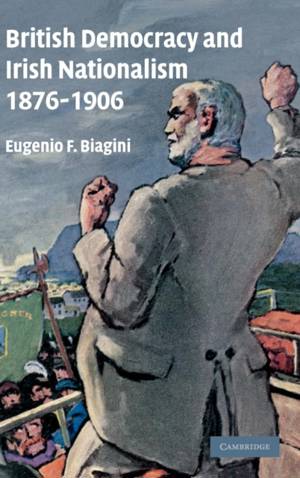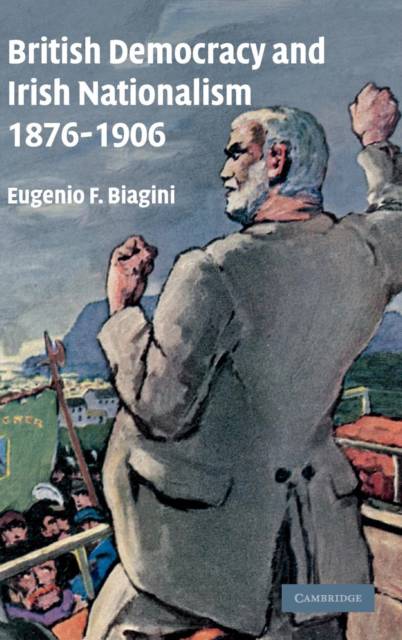
- Afhalen na 1 uur in een winkel met voorraad
- Gratis thuislevering in België vanaf € 30
- Ruim aanbod met 7 miljoen producten
- Afhalen na 1 uur in een winkel met voorraad
- Gratis thuislevering in België vanaf € 30
- Ruim aanbod met 7 miljoen producten
Zoeken
€ 200,45
+ 400 punten
Omschrijving
A major 2007 study of the impact of Home Rule on liberalism and popular radicalism in Britain and Ireland. Eugenio Biagini argues that between 1876 and 1906 the crisis of public conscience caused by the Home Rule debate acted as the main catalyst in the remaking of popular radicalism. This was not only because of Ireland's intrinsic importance but also because the 'Irish cause' came to be identified with democracy, constitutional freedoms and humanitarianism. The related politics of emotionalism did not aid in finding a solution to either the Home Rule or the Ulster problem but it did create a popular culture of human rights based on the conviction that, ultimately, politics should be guided by non-negotiable moral imperatives. Adopting a comparative perspective, this book explores the common ground between Irish and British democracy and makes a significant contribution to the history of human rights, imperialism and Victorian political culture.
Specificaties
Betrokkenen
- Auteur(s):
- Uitgeverij:
Inhoud
- Aantal bladzijden:
- 434
- Taal:
- Engels
Eigenschappen
- Productcode (EAN):
- 9780521841764
- Verschijningsdatum:
- 19/11/2007
- Uitvoering:
- Hardcover
- Formaat:
- Ongenaaid / garenloos gebonden
- Afmetingen:
- 152 mm x 229 mm
- Gewicht:
- 657 g

Alleen bij Standaard Boekhandel
+ 400 punten op je klantenkaart van Standaard Boekhandel
Beoordelingen
We publiceren alleen reviews die voldoen aan de voorwaarden voor reviews. Bekijk onze voorwaarden voor reviews.











